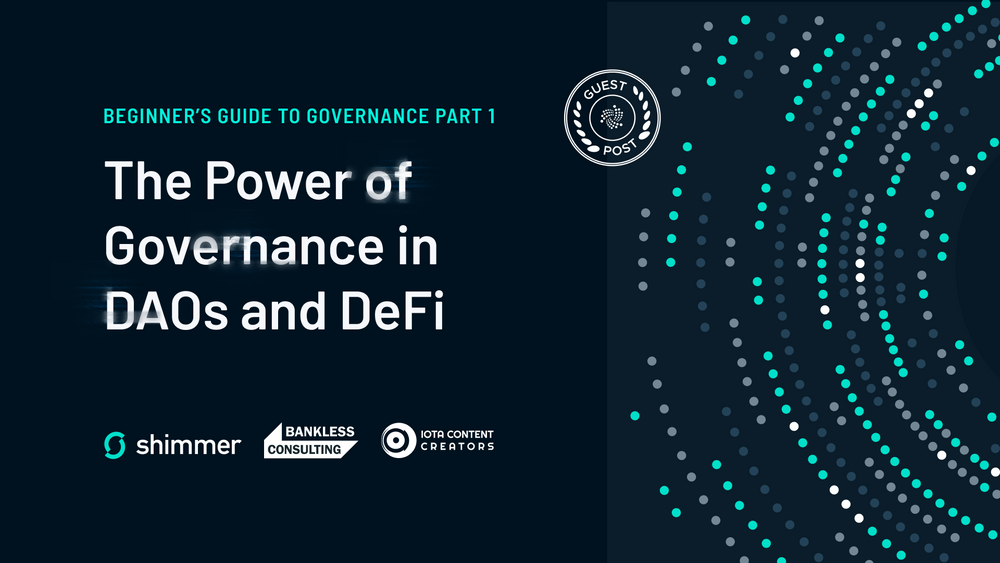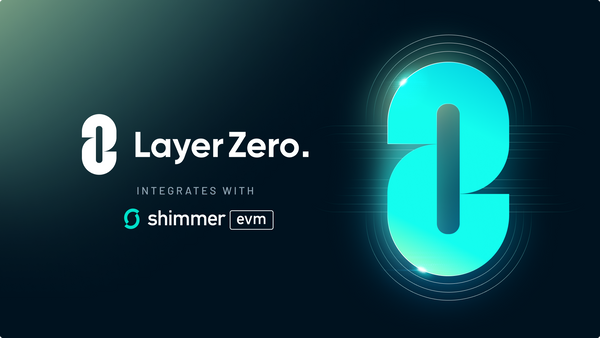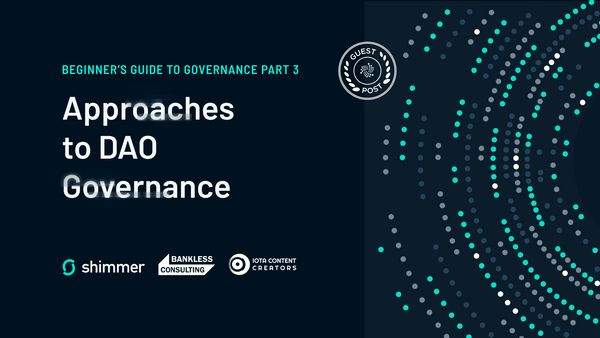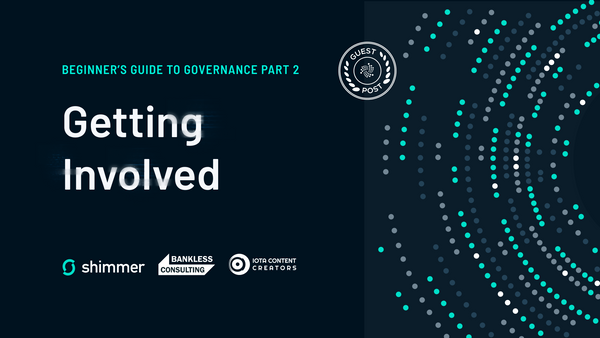Beginner’s Guide to Governance Part 1
The Power of Governance in DAOs and DeFi
TL;DR:
The fifth installment of our DeFi Beginner’s Guides is about governance. In it, we briefly discuss the evolution of Decentralized Autonomous Organizations (DAOs), steps in the governance process, and how to get involved, as well as a couple of examples of current DAOs and their structure. The key takeaway is that although there are several ways to contribute to protocol governance, the most important step is to simply get involved – other community members with more experience will be happy to guide you.
In the world of decentralized finance (DeFi) and Decentralized Autonomous Organizations (DAOs), governance often takes a back seat despite their widespread adoption. A case in point is UniSwap, boasting tens of thousands of token holders, but only a small minority actively engages in voting on proposals.
This reluctance to participate in governance poses a significant issue. Users, in principle, should be at the forefront of suggesting improvements to a platform. Otherwise, whales or those with ulterior motives could influence the outcome of community votes and support changes that benefit only them. Ideally, the entire community should influence the platform’s direction.
Real-world elections offer a good example. When there is an election for a high-profile public office, some countries make voting mandatory because they want everyone to consider the implications and make their voices heard. So, the citizens truly choose the officials who will represent them. The same should be true for DAOs. And while the scale is much smaller, it’s still critical that users participate to ensure the direction of the protocol matches their goals.
The evolution of decentralized organizations
To grasp the role of governance in the development of DAOs, let’s review two examples: The DAO and Mango Markets. We’ll conclude by listing ways that good governance could help improve the DAO experience for all.
The DAO

One of the first DAOs was the aptly named The DAO, which, though short-lived, demonstrated the power of these entities. In 2016, it launched on Ethereum as a venture capital fund, allowing participants to pledge their ETH for DAO tokens and collectively decide investment strategies.
This straightforward concept resonated with many who sent their ETH to the contract. The DAO raised around 150 million USD in ETH, which today equates to more than 18 billion USD taking into account ETH’s price increase. Unfortunately, a bug in the contract led to the loss of all the funds, making it one of the biggest hacks in the history of blockchain. But thanks to the power of governance, the loss wasn’t permanent.
The community had a difficult time deciding how to handle this crisis until ultimately agreeing to implement a hard fork in the Ethereum network. A radical change that permanently alters the ledger, a hard fork requires all nodes to upgrade to a new agreed-upon version of the protocol software and ledger. By doing so, users effectively nullified the hacked contract and returned the ETH to the original owners. Those who didn’t agree that the funds should be returned were able to maintain the old version of the protocol as Ethereum Classic (ETC).
It should be clear from this example that governance can be a powerful tool for enacting change in a crypto protocol. There is almost nothing that can’t be accomplished if enough users support an idea. In the case of The DAO, if users hadn’t participated in governance, all of the stolen funds would have remained in the hands of the hacker. Instead, the community collectively decided to make a change, and by working together they made it happen.
Mango Markets & DAO

Another case is Mango (https://mango.markets), a Solana-based DeFi trading platform and DAO. In October 2022, a hacker took a loan that wasn’t backed by much and, by manipulating the oracle used by Mango to fetch asset prices, ensured that the collateral was valued at a level much higher than it should have been, allowing the hacker to withdraw over $100 million from the treasury.
Notably, the hacker used the stolen funds to submit a proposal in the Mango forum. The proposal asked the community to forgive approximately 62% of the stolen sum if the rest was returned to the treasury. If approved, the hacker hoped to escape legal action through a White Hat hacker agreement. (A White Hat hacker is a person who uses their hacking skills to identify security vulnerabilities; unlike Black Hat or malicious hackers, White Hat hackers respect the law and attempt to help networks plug these security holes.) The problem is that the hacker was able to use the tokens they stole to vote for their own proposal and, since they possessed a large chunk of protocol tokens, they were able to easily influence the outcome of the vote.
Fighting hacks through governance innovations
So, how can governance address hacks similar to those experienced by Mango Markets and The DAO?
One option could be for the core team to use their power to overwrite to ignore the vote’s outcome. They can’t override the hack, of course, but they could nullify the proposal to allow the hacker to keep the funds.
Some protocols like MakerDAO have a shut-down process that allows them to halt the protocol and put their native token into a contract that is then burned. However, this action is irreversible and highly complex, so it’s not done lightly. Also, it needs the support of the entire community. After shutting the protocol down, they’d need to relaunch the token or even issue an entirely new one.
The key is to try to learn from past mistakes. There are governance education groups and forums where people discuss these issues and how to avoid them in the future so we all grow stronger together. DAOs are constantly innovating governance, and unexpected experiences help us all to learn and evolve, as well as suggest innovations such as the following.
Five governance innovations
- Simplicity: The DAO had complex contracts with many lines of code, making it difficult to identify potential vulnerabilities. DAOs like MolochDAO focus on simple governance structures with the least amount of code possible. Contracts like these are easier to maintain and defend from hacks.
- Rage Quit Function: This concept enables token holders to exit a DAO fairly, quickly accessing their proportional share of the treasury. For example, suppose a DAO issues 100 tokens and a user has 10 of them. That user’s holdings then represent 10% of the total treasury. If there is 10,000 USD in the treasury later and the user decides to Rage Quit, they send their 10 tokens to the treasury and immediately take 1,000 USD, corresponding to their allocation of the total. They could quickly sell, take their percentage of the treasury and never come back.
- Governor Bravo Governance Framework: Governor Bravo is a versatile, upgradeable governance framework developed by Compound. This smart contract framework allows governance votes to be registered on-chain or directly on the distributed ledger of the protocol. It not only enables “yes or no” votes but even abstaining votes; users can even add custom text notes to their votes. This framework has become the standard for many DeFi and DAO platforms due to its simplicity and security.
- Delegation: Often, we don’t have time to participate in governance as much as we’d like to. Even so, there are still ways we can contribute. Networks like Bitcoin feature a delegation program where users don’t need to personally participate in governance but instead have a chosen representative do it for them. The only requirement is to specify the delegate of your choice and allow them to represent you in governance matters. Good delegates have an obligation to inform their community about their views on upcoming proposals to ensure alignment.
- Airdrop: An airdrop is when a project earmarks a certain amount of its tokens and sends them for free to users who meet certain requirements. This enables protocols to reward community participation while potentially giving members governance power. Protocols could even monitor users who participate in governance to offer them an airdrop later. This is because governance is very important to a protocol since it’s the best way for them to make useful improvements. It makes sense that the protocols would want to reward those who are working towards positive change.
In the next part of this series, we’ll look at the steps involved in the governance process, from generating ideas for governance improvements to getting your ideas discussed, developed, voted on, and implemented.
In the meantime, if you’re interested in diving deeper into the world of decentralized governance, join our vibrant and knowledgeable community on our governance forum to explore the latest discussions, share your insights, and actively participate in the evolution of IOTA – your voice matters!
Introduction to Governance
Part 1: The Power of Governance in DAOs and DeFi
Part 2: Getting Involved
Part 3: Approaches to DAO Governance
Also in this series
Beginner's Guide to Crypto Wallets
Beginners Guide to DEX vs. CEX
Beginner's Guide to DeFi Lending & Borrowing
Beginner's Guide to Yield Farming



